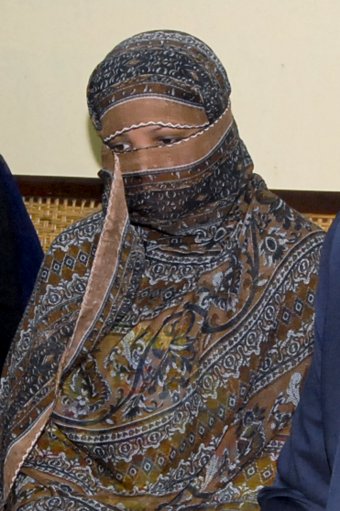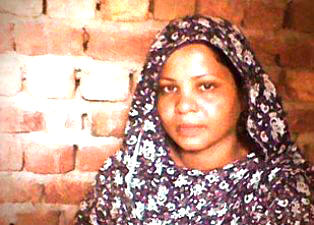Hopes rising that Asia Bibi's death sentence will be lifted

Asia Bibi could still walk free, despite her death sentence being upheld by the Pakistani courts, campaigners say.
However, even if the charges are dismissed, there is a danger that she may be made a target for Muslim extremists and be assassinated.
According to a Pakistan Analyst at Christian Solidarity Worldwide (CSW), it is "highly unlikely" that Bibi's death sentence, which was appealed and upheld yesterday, will be carried out.
"She is the first Christian woman to ever be handed the death sentence, and Pakistan haven't carried out any executions in six years," the source, who could not be named for security reasons, told Christian Today.
"No one has ever been upheld on a blasphemy charge in the Supreme Court."
Found guilty of blasphemy in November 2010, Bibi has been on death row for almost four years. Yesterday's appeal was delayed five times this year.
Her lawyers will now take her case to the upper echelons of the Pakistani legal system. The Centre for Legal Aid, Assistance and Settlement (CLAAS) has been supporting Bibi throughout her trial, and will submit a final appeal to the Supreme Court.
CSW's representative said that yesterday's verdict was "inevitable because of the way the court system is run". Extremist groups were present in the court room, which is a common occurrence in the lower courts as a way of intimidating the judge.
However, this is not possible in the Supreme Court, where security is much higher. There are high hopes that her final appeal will be successful.
"If there is any hope of Asia getting justice it's through the Supreme Court, so we're happy the case has moved on, though we are still concerned for her safety," he added.
"The current chief justice is a very moderate man, very cultured, and the Supreme Court holds a key role in Pakistani society. It is one of the three main power brokers in Pakistan, along with the military and civilian government. If the Supreme Court says Asia Bibi's case is important, then the rest of Pakistan will follow."
While Bibi may walk free from her death sentence, there remain concerns that she will be a target for Muslim extremists.

"If the case does go to the Supreme Court it may be overturned, but we have to remember that the Federal Sharia Court of Pakistan has called for a mandatory death sentence for blasphemy, so there's a clear shift in direction of hard-line thinking taking place in the country," said Andrew Boyd of Release International.
"The concern Release has is that extremists will be given encouragement to pursue their own line of justice. Many [similar] cases have resulted in assassination, either of the individual or their family. So both Asia and her family are at risk, whatever the law decides to do."
CSW's Pakistan Analyst said persecution in Pakistan is "worse than it has ever been".
"I have been visiting for many years, and this year it is particularly clear that it has never been worse for minorities in general and the freedom of religion," he said.
"Even Muslim minorities are suffering. There is a real threat of extremist organisations, militant and non-militant, which are holding a lot of sway...Pakistan is increasingly Islamic, there is a belief that it is an Islamic country for Muslims, and an indicator is the amount of cases and allegations [of blasphemy]."
He continued: "Most don't get registered as they're at a local level, but the amount of allegations has been exponentially increasing over the last ten years. The first case of blasphemy was registered in 1992, even though the laws were enacted in the 1980s, so it has taken a while for the idea of blasphemy and the role of the ordinary Pakistani in protecting the honour of Islam to take hold."
However, he added that not all Pakistanis subscribe to this ideology, but are being "forced into silence and tacit complicity" by extremists.
"The vast majority of Pakistanis are not obsessed with making Pakistan an Islamic state, they want stability and justice, but what has changed is that there is fear. Ordinary people don't speak up," he said.
"There is a move to harden up the law, and it's becoming difficult to speak up in Pakistan," Boyd confirmed.
"This is a bad law, and it has extreme notoriety worldwide. It has to be changed, and Release has been campaigning for years, and will continue to campaign, for it to be repealed."











